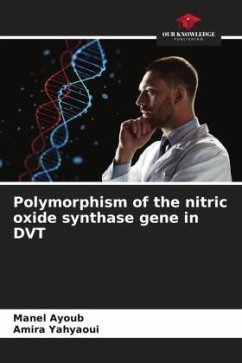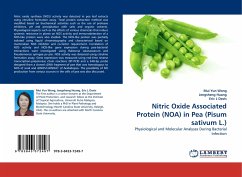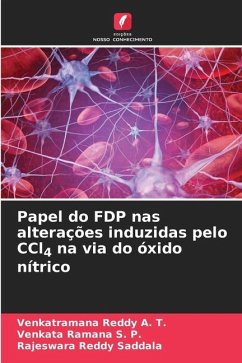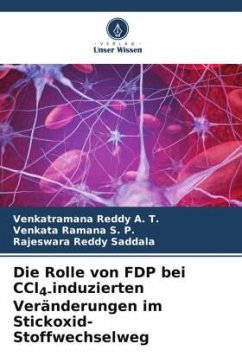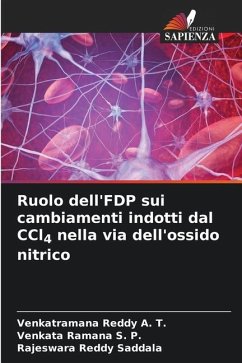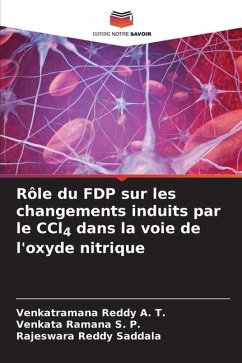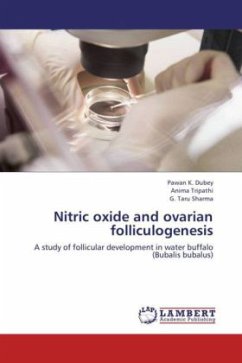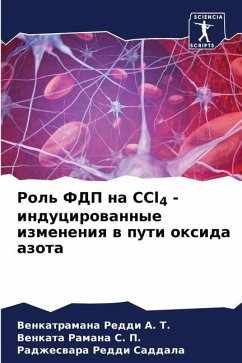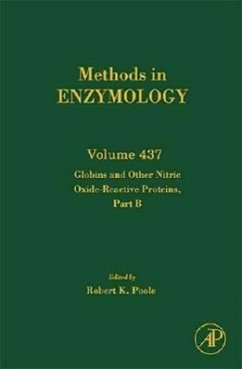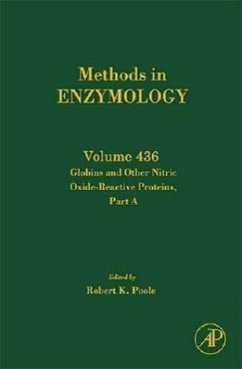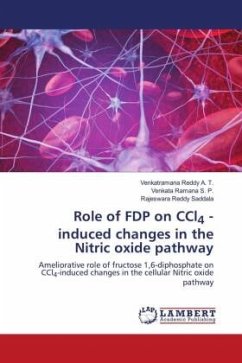
Role of FDP on CCl4 -induced changes in the Nitric oxide pathway
Ameliorative role of fructose 1,6-diphosphate on CCl4-induced changes in the cellular Nitric oxide pathway
Versandkostenfrei!
Versandfertig in 6-10 Tagen
40,99 €
inkl. MwSt.

PAYBACK Punkte
20 °P sammeln!
The study was undertaken to understand Carbontetrachloride (CCl4)-induced toxicity as well as Fructose 1,6- diphosphate (FDP) protective role in rats with special reference to cellular Nitric acid Pathway. The results showed inhibition of inducible nitric oxide synthase (iNOS) and cellular nitric oxide synthase (cNOS) activities by CCl4 both in vitro and in vivo. However subsequent treatment of rats with FDP has restored the CCl4-induced changes in iNOS and cNOS activities reiterating the ameliorative role of FDP. Further, changes in serum NO2 - and NO3 - levels in CCl4-treated rats also regis...
The study was undertaken to understand Carbontetrachloride (CCl4)-induced toxicity as well as Fructose 1,6- diphosphate (FDP) protective role in rats with special reference to cellular Nitric acid Pathway. The results showed inhibition of inducible nitric oxide synthase (iNOS) and cellular nitric oxide synthase (cNOS) activities by CCl4 both in vitro and in vivo. However subsequent treatment of rats with FDP has restored the CCl4-induced changes in iNOS and cNOS activities reiterating the ameliorative role of FDP. Further, changes in serum NO2 - and NO3 - levels in CCl4-treated rats also registered near normalcy following FDP treatment. The study, thus highlights the fact that FDP attenuates CCl4-induced cellular toxicity in experimental animals with reference to cellular NO pathway.



